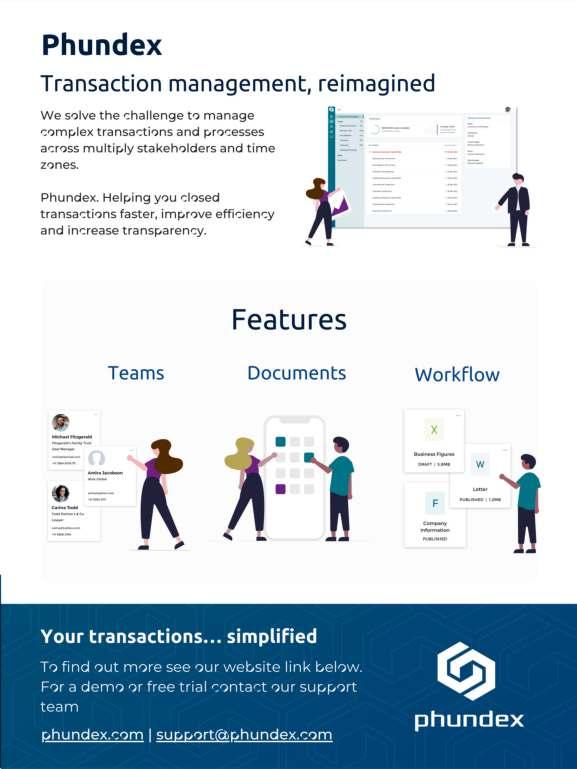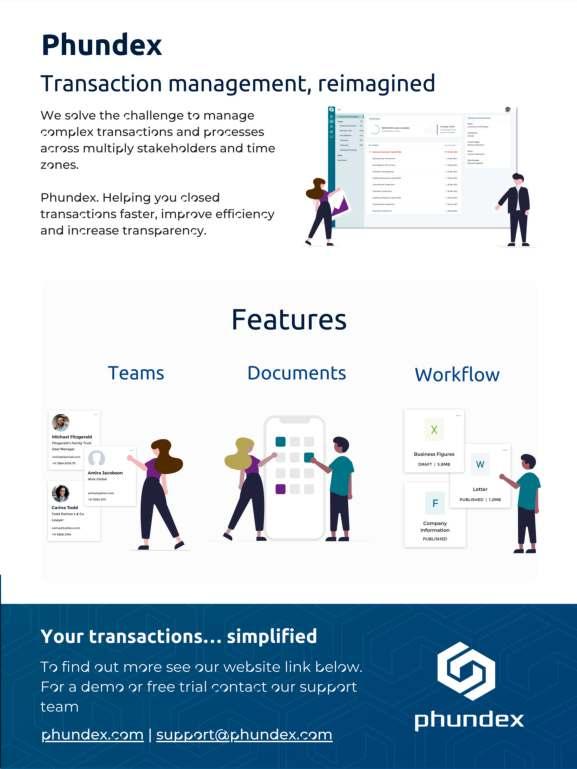
5 minute read
O r g a n i z a t i o n s Organizations
Monetary management plays a crucial role in the success and sustainability of emerging organizations. As these companies navigate through their initial stages of growth, effective fiscal management becomes even more critical to ensure sound decision-making, optimize resource allocation, and achieve long-term objectives. In this article, we will explore the vital aspects of fiscal management that emerging organizations should prioritize to thrive in a dynamic business environment.
Budgeting and Planning
A well-defined budgeting and planning process is fundamental for emerging organizations. It involves setting financial goals, estimating revenues and expenses, and allocating resources accordingly. A comprehensive budgeting approach allows organizations to make informed decisions, prioritize initiatives, and monitor performance against targets. It also enables effective cash flow management and ensures optimal utilization of available resources.


Cash Flow Management

Managing cash flow is vital for the survival and growth of emerging organizations. Monitoring and projecting cash inflows and outflows helps organizations identify potential liquidity gaps and take proactive measures to address them. By maintaining healthy cash reserves, organizations can meet short-term obligations, invest in growth opportunities, and weather unexpected financial challenges. Effective cash flow management also involves optimizing receivables and payables, implementing efficient billing and collection processes, and exploring working capital optimization strategies.
Financial Risk Management
Emerging organizations must actively manage financial risks to safeguard their operations and financial stability. This involves identifying and assessing various risks such as market volatility, credit risks, interest rate fluctuations, and operational uncertainties. Organizations can mitigate these risks through appropriate risk management strategies such as diversification, hedging, insurance coverage, and contingency planning. By proactively addressing potential risks, organizations can protect their financial health and enhance their ability to respond to unforeseen circumstances.
Capital Structure and Financing
Determining the optimal capital structure and securing appropriate financing options are critical for emerging organizations. Analyzing the capital requirements and exploring funding alternatives help organizations strike a balance between equity and debt financing. Effective financial management entails evaluating the cost of capital, negotiating favourable terms with lenders or investors, and maintaining a sustainable debt-to-equity ratio. It also involves considering alternative funding sources such as venture capital, angel investors, crowdfunding, or government grants.
Financial Reporting and Compliance
Accurate and timely financial reporting is crucial for emerging organizations to gain credibility, attract investors, and comply with regulatory requirements. Implementing robust accounting systems and practices ensures that financial statements are prepared in accordance with relevant accounting standards. Organizations should also establish internal controls to prevent fraud and misappropriation of funds. Compliance with tax regulations, reporting obligations, and industry-specific regulations is essential to avoid legal penalties and maintain the organization's reputation.
Performance Measurement and Analysis
Monitoring and analyzing financial performance is essential to assess the effectiveness of strategies and initiatives undertaken by emerging organizations. Key performance indicators (KPIs) such as profitability ratios, return on investment, and liquidity ratios help measure financial performance against predetermined goals. Regular financial analysis provides valuable insights into areas of improvement, highlights inefficiencies, and supports decision-making processes. By identifying trends and patterns, organizations can adjust their strategies and optimize financial outcomes.
Effective fiscal management is indispensable for the success of emerging organizations. By prioritizing aspects such as budgeting and planning, cash flow management, financial risk management, capital structure and financing, financial reporting and compliance, and performance measurement and analysis, these organizations can navigate through the complexities of their early growth stages and lay a solid foundation for long-term success.
With careful attention to these vital aspects, emerging organizations can optimize resource allocation, make informed decisions, and achieve sustainable financial growth.






Artificial Intelligence (AI) has emerged as a transformative force in various industries, and wealth management is no exception. The integration of AI technologies into wealth management functions has revolutionized the way financial institutions and advisors operate, enabling them to provide more personalized and efficient services to clients. In this article, we will explore how AI is enhancing wealth management functions and reshaping the landscape of the financial industry.
Intelligent Robo-Advisory
One of the most prominent applications of AI in wealth management is the development of intelligent roboadvisory platforms. These platforms leverage AI algorithms to provide automated investment advice and portfolio management services. By analyzing vast amounts of financial data, market trends, and client preferences, roboadvisors can create tailored investment portfolios and rebalance them automatically. AI-powered robo-advisors enable investors to access low-cost, diversified investment solutions while benefiting from continuous portfolio monitoring and optimization.
Data Analysis and Insights
AI algorithms excel at analyzing large volumes of data and extracting meaningful insights. In wealth management, AIpowered data analysis tools can process vast amounts of financial and market data, news articles, social media sentiment, and economic indicators. By identifying patterns and trends, these tools can provide wealth managers with valuable insights to make informed investment decisions. AI-driven data analysis also enhances risk management capabilities by identifying potential risks and predicting market fluctuations.
Natural Language Processing (NLP) and Chatbots
AI-powered chatbots equipped with natural language processing capabilities are transforming client interactions in wealth management. Chatbots can provide personalized support, answer client queries, and offer real-time financial advice. They can understand natural language inputs, interpret complex financial queries, and provide accurate responses. AI-powered chatbots enhance the client experience by offering immediate assistance, 24/7 availability, and quick access to portfolio information.
Risk Assessment and Fraud Detection
AI algorithms have proven to be highly effective in risk assessment and fraud detection within wealth management. These algorithms analyze historical transaction data, client behavior, and market trends to identify suspicious activities and potential fraud attempts. AI systems can promptly flag irregularities, enabling wealth managers to take proactive measures to mitigate risks and protect clients' assets. The use of AI in risk assessment also enhances compliance with regulatory frameworks and helps detect and prevent money laundering and other financial crimes.

Personalized Financial Planning
AI technologies enable wealth managers to provide personalized financial planning services tailored to individual client needs. By analyzing client financial data, goals, risk tolerance, and preferences, AI algorithms can generate customized financial plans. These plans take into account various factors such as retirement planning, tax optimization, estate planning, and investment strategies. AIpowered tools also facilitate scenario analysis, allowing clients to understand the potential outcomes of different financial decisions and adjust their plans accordingly.
Behavioral Finance and Sentiment Analysis
AI algorithms can analyze client behavior, sentiment, and emotions to gain insights into their investment decisions. By incorporating behavioral finance principles, wealth managers can better understand clients' biases, risk tolerance, and decision-making patterns. Sentiment analysis of social media and news articles also helps gauge market sentiment and identify potential investment opportunities or risks. AI-powered sentiment analysis tools provide a more holistic view of market dynamics and enable wealth managers to make data-driven investment recommendations.
AI is revolutionizing the wealth management industry by enhancing various functions and delivering more personalized, efficient, and insightful services. From intelligent robo-advisory platforms to advanced data analysis, natural language processing chatbots, risk assessment, and personalized financial planning, AI technologies are reshaping the way wealth management is conducted. By leveraging AI capabilities, wealth managers can provide tailored investment advice, mitigate risks, detect fraud, and deliver superior client experiences. As AI continues to advance, it will further augment wealth management functions, enabling financial institutions and advisors to better meet the evolving needs of their clients in an increasingly complex financial landscape.





